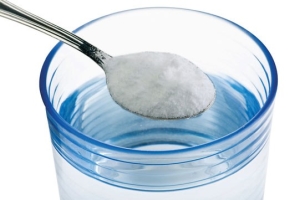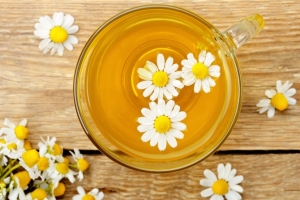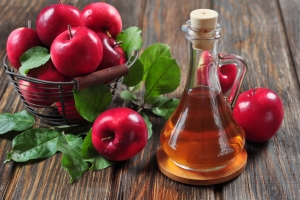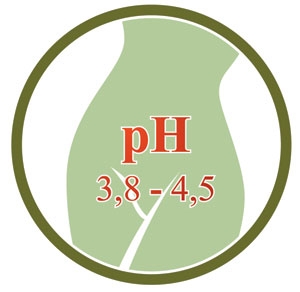Itching in the intimate area increases at night. What skin diseases cause itching in an intimate place? Sea buckthorn oil.
Itching and burning of the genitals are equivalent to pain and are caused by irritation of sensitive nerve endings. These signs reflect pathological condition reproductive system separately and the whole organism in particular. Itching is a condition in which a woman constantly or periodically has a desire to comb a particular area. A burning sensation is a special feeling accompanied by a sensation of heat.
Possible causes of unpleasant symptoms
When vaginal itching becomes a constant problem, you start looking for solutions other than drugs. Fortunately, home remedies are just as effective as the drugs on the market. Here are some very effective home remedies that you can try to get rid of this annoying problem.
Home remedies for vaginal or genital itching
It has excellent antibacterial and antifungal properties. This will help completely remove itching if it is fungal or bacterial causing the infection. To enjoy the benefits of apple cider vinegar, take two tablespoons of apple cider vinegar and mix it with warm water.
Vaginal itching is a symptom that occurs as a result of an infectious or non-infectious inflammation of the vaginal mucosa (vaginitis), often with inflammation of the vulva (vulvovaginitis). Symptoms may include irritation, burning, redness in intimate area and sometimes dysuria and dyspareunia. The symptoms of vaginitis are one of the most common complaints of gynecological patients.
Tumors of the reproductive organs
Wash your vagina with this water twice a day for two to three days. This should effectively take care of your problem. Apple cider vinegar makes the vagina acidic, where bacteria cannot thrive for long. Vaginal itching, especially, can be very unpleasant over a period of time. This can interrupt your sleep and cause tiredness and lethargy along with itching. To stop this intense itching at night, apply ice cubes directly or on a cold compress in your vagina. This can be cumbersome work.
Although itching in intimate place in women is hallmark yeast infections (candidiasis, thrush) and other vaginal infections (including sexually transmitted diseases), itching in the vagina and vulva can occur in other cases.
Intimate itching can also occur as a result of chemical irritants found in detergents or soaps, and can also cause it cold and hot shower and vaginal creams, toilet paper, bath accessories, items feminine hygiene and a variety of vaginal contraceptives.
Itching in an intimate place after taking antibiotics
But when you are considering severe itching, doing a cold compress is much best job any day. At the very least, you can sleep well after the itch is put to rest. Salt can effectively remove itching and bacteria due to its antibacterial properties. Wash your vagina with concentrated salt water when you feel itchy. This will give you immense relief instantly and prevent further bacteria growth.
Redness and itching appeared
Alternatively, you can fill half the tank with warm water and add half a cup of salt to it. Sit in the squat bath. When sitting, open your vaginal walls with your finger to allow salted water to enter and effectively kill bacteria.
Menopausal women may experience intimate itching of the genitals due to fluctuations in estrogen levels. When estrogen levels decrease in perimenopause, the walls of the vagina become thinner and drier, leading to itching.
Some studies have shown a link between psychological stress and the appearance of vaginal yeast infections. This is probably due to the fact that stress is exerted negative impact on immune system and possibly increases the likelihood of getting a yeast infection (candidiasis).
Why is it important for a woman to see a specialist?
Garlic also has strong antibacterial properties that can relieve your symptoms instantly, or it's probably the smell of garlic that does the trick! Whatever the reason, there is no harm in trying this beautiful herb when you have severe itching that you cannot stop.
Why may itchiness occur?
Pour 2-3 cloves of garlic down your throat. Make the garlic into a paste and apply to the inside of the vagina, tying it into cheesecloth. The smell can be depressing, but the relief can come as a surprise! Using probiotics to suppress bad bacteria in the body is not new medicine. Pure yogurt has active cultures that can remove bad bacteria while adding good bacteria in abundance. For vaginal itching, drink a cup of pure, unsweetened cottage cheese every day. Yeast infections can be treated immediately with yogurt.
Using irritating cosmetics and detergents
If the itching of the private parts occurs after the use of new cosmetics (for example, intimate hygiene gel, shower gel) or detergent(for example, washing powder, fabric softener), probably one of these substances irritates the delicate mucous membrane of the vagina and labia.
Goat or sheep milk yogurt - best remedy for the treatment of vaginal itching. Another way to use yoghurt is to apply it directly to the vaginal area, which is the best way fight vaginal itching. Direct application of yogurt will immediately stop vaginal itching. A persistent application will surely fix the problem permanently. You can use a swab for this purpose. Soak a yogurt swab and leave it in your vagina for several hours. Frozen yogurt can also be inserted inside the vagina for instant relief.
In turn, when washing, you should use a powder for children or people with allergies. An allergic reaction often occurs as a result of contact with chemicals contained in personal care products and laundry detergents. However, in women with weakened immune systems, panty liners and sanitary napkins (mainly containing fragrances and perfumes) can also cause skin allergy symptoms.
Basil leaves have antimicrobial, antifungal, and antibacterial properties. Take basil leaves and boil them in two cups of water. Steep for 20 minutes until the water is strong. Drink this water twice a day to remove bacteria that cause vaginal itching.
Antibacterial talcum powder is available in herbal as well as medicinal varieties. Herbal or homeopathic talc will be soft on the body but take time to heal. Over-the-counter medicated talcum powder is very effective if you are looking for fast decision Problems.
If you suspect fragrant sanitary napkins are causing itching, burning, and swelling in your private area, try sanitary napkins for people with allergies, which are made from organic cotton and / or rayon (bamboo).
Wearing underwear
Irritation and itching of the labia can be caused by unsuitable types of underwear: made of hard, artificial, unventilated materials, as well as thongs. Breathable cotton underwear should be worn to avoid discomfort and itching.
Apply talcum powder to the vagina to kill bacteria as well as remove any fungal action resulting from a moist environment. Rosemary leaves can be immersed in water for 15 minutes and allowed to cool. Wash your vaginal area with this herbal solution and feel the difference in an instant.
Giving the vaginal area moisture due to sweat and water is one of the reasons bacteria and fungi grow, allowing infections and embarrassing problems. Always keep your vagina free of moisture to prevent infections. Apply a mild antibacterial talcum powder for this purpose, which will offer a double effect on your skin.
Intimate epilation
Irritation of the skin in an intimate place can appear after waxing, so after it, application of a moisturizer or gel is indicated. You should also use special creams or gels for hair removal on sensitive areas.
Atrophic vulvovaginitis
Vulvar atrophy usually occurs in postmenopausal women before and after menopause, and is associated with a deficiency of female sex hormones. As a result of a decrease in estrogen levels in female body, the epithelium becomes thinner and the mucus covering the labia disappears. This causes: vaginal dryness, itching and burning of the intimate area as well as contact bleeding.
Possible causes in women
Prevention is better than any day cure. If you've had vaginal itching at any time in your life, you'll find out exactly why this advice is the best way to avoid trouble. Let the cool air keep your vagina dry. Wear underwear cotton or leave your personal details naked when you can.
Who can get vaginal fungus?
Walking around was excruciating, and so I fell asleep. Sex was uncomfortable, as were all daily activities. In all despair after one of the workouts and in great discomfort, I happened to come across a means for douching with apple cider vinegar apples, and the discomfort was completely relieved! Some fitness training and discomfort didn't come back even with the heat and humidity!
- The women of John Peter Most are concerned about vaginal itching.
- They use many drugs to treat this.
- It is a herbal cream, so it has no side effect.
Treatment: This is an irreversible process, and spontaneous disappearance of inflammation is unlikely. Women with atrophic vulvovaginitis should first of all follow the rules of personal hygiene, because they are more vulnerable to the formation of petechiae and erosion of the epithelium.
Fungal infections
Fungal infections are caused by the presence of yeast, so in addition to itching and burning, there is a characteristic white, cheesy discharge.
About three-quarters of all women have at least one infection, many also have several. While symptoms such as severe itching in the female doctor's private area are recommended the first time, subsequent infections can also be well treated at home. In some situations, there is high risk infection with typical itching in the intimate area, namely, when the natural environment of the vagina is out of balance. This may be the case, for example, if you.
Diabetics are your menstrual pill bleeding or a weakened immune system. Pregnant women are treated with antibiotics. ... Yes, vaginal infection does not prevent pregnancy. In medicine, there is also no reason to have sex despite a fungal infection. However, symptoms such as severe itching in the intimate area ensure that most affected women do not want to have sex.
Treatment: to make sure that the cause of the intimate itching is the fungus, the doctor prescribes a mycological vaginal smear.
The most common treatment for vaginal candidiasis is local application drugs from the group of azoles or oral administration of fluconazole. Itching symptoms usually begin to subside after 2–3 days.
It is not uncommon for women to develop into a vaginal fungus. Due to the huge hormonal changes the natural phlomaginal flora is out of balance so that the yeast can reproduce serenely. Peeling during pregnancy does not pose a risk to the baby, but it is also a problem. However, you should definitely think about your doctor and drug treatment. This also applies during lactation.
Peel infection can also be treated with a simple course. For this purpose, the pharmacy has medications prescription. They tend to vaginal tablets that you put into your vagina. There they unfold their effect in place. The combination products also contain a cream that you use on the outer genital area. This helps to quickly soften unpleasant itching in the intimate area. Vaginal fungus medicines contain active ingredients that kill yeast and yeast spores.
Trichomoniasis
Trichomoniasis is a sexually transmitted infection, which is responsible for the protozoa - Trichomonas vaginalis. except intimate itching and burning sensations also appear yellow-green, frothy, usually foul-smelling discharge. Associated symptoms may include pain, itching, and burning in the urethra and tenesmus.
Treatment: drugs derived from imidazole are used. Treatment should also include both sex partners.
Thus, fungal infection suppressed for several days. Wet envelopes, herbal strainer baths, or even yogurt swabs - please don't! The list of purported "natural" remedies for itching in the intimate area is long. Many of the proposed methods create an environment in which the yeast is very comfortable. There is also a risk of so-called bacterial superinfection. Thus, a harmless pilin infection can become a dangerous harmless disease.
Especially women who often suffer from vaginosis want to know how they can make a new infection possible. In fact, there are some behaviors that can reduce the risk of yeast spreading out of control. They also help to better deal with chronic vaginal fungi.
Pubic lice
Lice are sexually transmitted and, unlike head lice, are not a serious epidemiological threat. The disease is caused by lice that lay eggs in the area pubic hair which causes severe itching.
Treatment takes place under the supervision of a dermatologist, based on the use of drugs containing permethrin - a chemical drug is used to remove insects (including ticks).
The correct level of hygiene is crucial here. Regular washing is important, but exaggerated intimate hygiene can attack the vaginal mucous membranes and damage the flora.
- Cleansing the outside of the vagina with a mild washing lotion is adequate.
- Indulge in deodorants or other scented products in the intimate area.
- Avoid very hot baths.
After swimming and after sweaty sports, wet clothes change, especially in summer, to tight trousers like jeans, don't wear cotton underwear instead synthetic materials... In addition, it is important that you strengthen your immune system as a whole, including healthy eating, physical exercises on fresh air, getting adequate sleep and avoiding stress.
Diabetes
High blood sugar levels can promote the growth of yeast in the intimate area, which feeds on pure glucose and a small amount of amino acids. A characteristic symptom is the appearance of severe itching.
Treatment: See a doctor as soon as possible to regulate blood sugar levels and lubricate the vulva with an antifungal ointment (such as clotrimazole).
However, Scheidenpiltz is taboo for many women. In this video you will find relevant information about the most important aspects and the answers to your questions. Note for cream: Contains cetylstearyl alcohol. Please take a look at the flyer.
Please pay attention to the package insert! Active ingredient: bifonazole. Do not spray on flames or luminous objects. Keep away from sources of ignition - No smoking. The spray solution is highly flammable due to the ethanol content. Note for cream: Contains cetyl stearyl alcohol.
Psoriasis
There are rare psoriasis lesions of the intimate genital area. Genital psoriasis occurs in both infants and adults.
Treatment includes removing scabs, psoriatic lesions. Then anti-inflammatory drugs are applied, which slow down the excessive division of skin cells and reduce itching.
Lichen sclerosus of the vulva
Lichen sclerosus of the vulva is a chronic condition in which thickening of the skin occurs. Symptoms are accompanied by pain and itching in the intimate area of the external genitalia. The most common causes of the disease are hormonal disorders, but the risk of its occurrence is increased in women with autoimmune diseases, weakened immunity and genetic predisposition.
Treatment includes the use of a vitamin A ointment or corticosteroid and estrogen.
Erythroplasia Keira
This is a form of non-invasive squamous cell skin cancer that is considered a type of Bowen's disease. Characteristic symptom the disease is a solitary, smooth erythema located in the intimate zone. Likely cause the disease is infection with the human papillomavirus (HPV types 16, 18, 31, 33, 35).
Treatment: 5% 5-fluuroracil ointment and superficial x-rays are applied.
Vulvar cancer
Vulvar cancer is rare species gynecological cancer and usually affects women over the age of 60. The disease is often asymptomatic or has long period intimate itching, pain around the clitoris, and foul-smelling vaginal discharge.
Treatment depends on the stage of the disease:
- removal of the vulva with regional nodes (stage I)
- radical removal of the vulva with bilateral inguinal lymph nodes (stage II)
- radical surgical resection of the vulva and part of the urethra and rectum (stage III)
Chemotherapy is not used.
Taking tamoxifen
Tamoxifen is a synthetic, non-steroidal antiestrogen - a drug that inhibits the growth of cancer cells... It is mainly used in the treatment of breast cancer. Among the long list of his side effects there is: itching in intimate places, vaginal discharge, violations menstrual cycle, and even vaginal bleeding.
Itching of the intimate area during menstruation
Intimate itching during menstruation can be a sign of a fungal infection. This type of infection usually goes away with menstruation and reappears before the next monthly bleeding. In addition, if you notice a vaginal discharge similar to cheese or cottage cheese, you need to go to the gynecologist as soon as possible.
Itching in private areas during pregnancy
Itching in the intimate area in women during pregnancy is usually caused by changes in the natural pH of the vagina from acidic to alkaline, which causes local irritation. Alkaline pH also promotes bacterial and fungal infections. To rule out infection, you should consult your doctor. If itching is simply caused by a change in vaginal pH, lower the pH (for example, using a baking soda). If your doctor diagnoses an infection, he or she will suggest appropriate treatment.
blow and burning sensation in the intimate area - home treatment
Treatment of intimate itching in women should be prescribed by a doctor! Only a specialist is able to determine the cause and prescribe the appropriate treatment. However, you can relieve the discomfort caused by itching, as well as carry out prevention, yourself at home.
Here are some tips on how to do this:
Use cosmetical tools that are well tolerated sensitive skin pubis and able to maintain normal level NS. Accordingly, it is recommended to use gels for personal hygiene containing lactic acid bacteria (they prevent the attacks of pathogenic bacteria) and have a pH close to that of the intimate area. A product for daily intimate hygiene of a woman should have a pH of about 5.2, while optimal value pH to facilitate infection 3.5.
During the bath, a woman should avoid using regular soap, as it has a drying effect. In addition, the substances contained in it change the skin's reaction to alkaline. As a result, an excellent environment for the growth of microorganisms is formed in the area of the external genital organs and the vagina, contributing to the formation of numerous infections.
Herbs
Modern herbal medicine for burning and itching in women recommends herbs used for a sitz bath, compresses, and rinsing. They work well because they have antibacterial, anti-inflammatory, antipruritic, anti-allergic, and antifungal properties. For the external treatment of itching, a decoction of oak bark, an infusion of yarrow flowers and a decoction of aloe are used. A sage or thyme bath will also be effective.
Unpleasant sensations and discomfort in the intimate area are familiar to almost every woman. They usually present with itching and burning sensations.
A variety of factors can cause this problem. The exact cause can be established by contacting a specialist. After all, itching is the action of the nerve receptors of the skin and mucous membranes, which appears as a reaction to changes in the body.
It is impossible to ignore such a state, it causes nervousness and a feeling of inconvenience.. Modern women can not always find time to go to the gynecologist, but timely treatment at home gives a reliable and quick result... Therefore, it is very important to consider tips on how to treat itching and burning in the intimate in women at home.
There are special drugs, suppositories that will not only remove unpleasant symptoms, but also cure internal disorders.
Not necessarily the source of discomfort is diseases of the female reproductive system.... This often results from allergic reaction on linen and care products.
 Itching can occur in both girls and women, due to inadequate irritation of the nerve endings. The body malfunctions, which can lead to more serious symptoms.
Itching can occur in both girls and women, due to inadequate irritation of the nerve endings. The body malfunctions, which can lead to more serious symptoms.
It appears gradually or spontaneously with an increasing effect. Often causes an irresistible desire to scratch intimate places. This condition is annoying, distracting from work, long walks, and often leads to insomnia.
Sometimes itching and burning are mild and appear periodically, because of this, women perceive this as normal. But it is important to understand that such manifestations are an abnormal condition and always indicate certain health problems, and therefore require attention.
There are a lot of factors that provoke itching and burning of female genital organs, including both internal and external. Ways to eliminate such discomfort depend on the reasons for its occurrence.
The most common provocateurs:
Similar negative sensations that appear in the form of burning without discharge in the intimate area in women are not always symptoms of pathologies of the body.
The reasons may be the wearing of underwear that does not match the size and rubs, temperature changes, mechanical trauma to the genitals, and the use of potent medications.
Improper care of the genitals contributes to this problem.... But it cannot be completely ruled out serious illnesses... Therefore, it is best to consult a doctor for an accurate diagnosis.
If it is not possible to quickly go to an appointment with a gynecologist, and the unpleasant symptoms intensify, then you can resort to prescriptions traditional medicine and get rid of the problem yourself.
To do this, you need to know how to remove the burning sensation in the intimate area of women at home.
But if possible, you should see a doctor, since the problem may recur, develop into chronic illness and getting rid of it will be quite difficult.
The most effective folk methods:

If itching and burning occurs during menstruation, you just need to carry out hygiene procedures, no treatment is required during this period.
The main reasons for the appearance:
- a decrease in immunity leads to the fact that the body cannot fully fight microbes;
- Spotting is an excellent breeding ground for bacteria.
Treat itching and burning with diabetes mellitus it is possible by such means:

Methods for treating itching during pregnancy:
With menopause, a problem such as vaginal dryness is inevitable. This discomfort makes itself felt and not only the genital tract suffers, but also the vulva.
Some are ashamed of this problem. Therefore, it is important to learn how to treat dry and burning sensation in the intimate area in women with menopause.
Vaginal dryness with menopause appears due to a decrease in the volume of estrogen... It is difficult to feel healthy in such discomfort, vaginal dryness is a serious problem that causes a burning sensation and requires treatment.
It will help to reduce or even completely eliminate such discomfort as dryness and burning sensation in the intimate area of women, treatment at home. After consulting a gynecologist, traditional medicine recipes can be used as an addition to the main therapy.
Baths, douching, and the use of decoctions give a quick positive effect and promote healing of injuries.

To avoid unpleasant symptoms in the genitals, it is important for women to adhere to certain preventive measures:

Intimate itching is an uncomfortable sensation that constrains a woman and causes anxiety.... Both harmless factors and serious diseases can contribute to this condition.
Therefore, there is no need to hope for their own termination. There are many ways to relieve discomfort.
Among them effective recipes traditional medicine and pharmacy products. Timely started treatment will help to avoid infection of microtraumas of the skin and mucous membranes.
